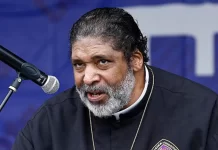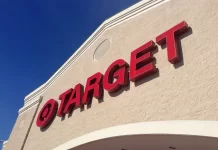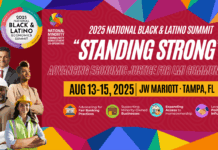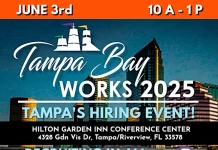The Mayor expects to announce a decision at the end of January.
The city of St. Petersburg received four bids to redevelop the Tropicana Field site, more recently known as the Historic Gas Plant District.
As expected, Sugar Hill Community Partners is one of them. The firm was a finalist under former Mayor Rick Kriseman’s administration but lost out on the opportunity when Kriseman selected Midtown Development. The firm got a second chance in June when current Mayor Ken Welch announced he was scrapping the previous bidding process and starting anew.
Friday was the deadline for submissions.
Other proposers include 50 Plus 1 Sports, Hines & Tampa Bay Rays, and Restoration Associates.
The Tampa Bay Rays, long expected to bid for the redevelopment opportunity, submitted a proposal with global real estate development firm Hines, which served as the Rays’ development partner when it was considering Al Lang Stadium for a potential new site in 2008. That process was scuttled when voters rejected it at the ballot box, a required vote because Al Lang is on waterfront property.
In a press release, Hines said its joint proposal with the Rays includes 5,700 multifamily units, 1.4 million square feet of office, 300,000 square feet of retail, 700 hotel rooms, 600 senior living residences, a 2,500-person entertainment venue, and various civic uses.
“Hines and the Rays have embraced and incorporated the City of St. Petersburg’s goals of honoring the Historic Gas Plant District legacy and creating St. Petersburg’s next great place to live, work, and play. The site would include over 20 new urban blocks and provide public benefit on over half of the land area, in addition to nine sustainability strategies that will advance the city’s priorities and position St. Petersburg as a leading city for large-scale resilience,” the release said.
“We commend 50 Plus 1 Sports, Hines & Tampa Bay Rays, Restoration Associates, and Sugar Hill Community Partners for their diligent efforts to submit proposals that will fuel inclusive progress and equitable development for future generations who will live, visit and do business in our city,” Welch said in a statement.
“We will review the proposers’ plans with a keen eye on their interpretation of affordable and workforce housing; office and meeting space; arts and culture; research, innovation, and education; recreation; open space, healthy and sustainable development; and intentional equity. We look forward to engaging the community as we determine the future of this historically and economically vital part of St. Petersburg, and the Tampa Bay Region.”
The city issued a request for proposals (RFP) on Aug. 26 calling for plans that provided an additional emphasis on equitable redevelopment and affordable housing, as well as details responding to current economic and societal conditions and community input. The RFP also called for a 17.3-acre carve out, from the overall 86-acre site, for a baseball stadium, an inclusion Welch said at the time was to provide certainty on the question of whether baseball would remain in St. Pete.
The city said it plans to publicly post the proposals on its website “after an expedition review by city staff to ensure that each proposal is ADA compliant.”
The city will hold a community presentation on Jan. 4 at the Coliseum where members of the public will have the opportunity to hear overviews on plans from each proposer.
A press release from the city said Welch will announce a developer decision at his first State of the City address at the end of January.
The Tropicana Field site sits on land where a Black residential and business community thrived 40 years ago, in order to make way for an eventual stadium. Welch has long lamented that promises made to those displaced have not been fulfilled and seeks to make good on those promises with the new RFP process.
His priorities include attainable housing, equitable business opportunities, office space, meeting space, open space, and “overall equitable and impactful economic development that benefits all.” Read more here.

















